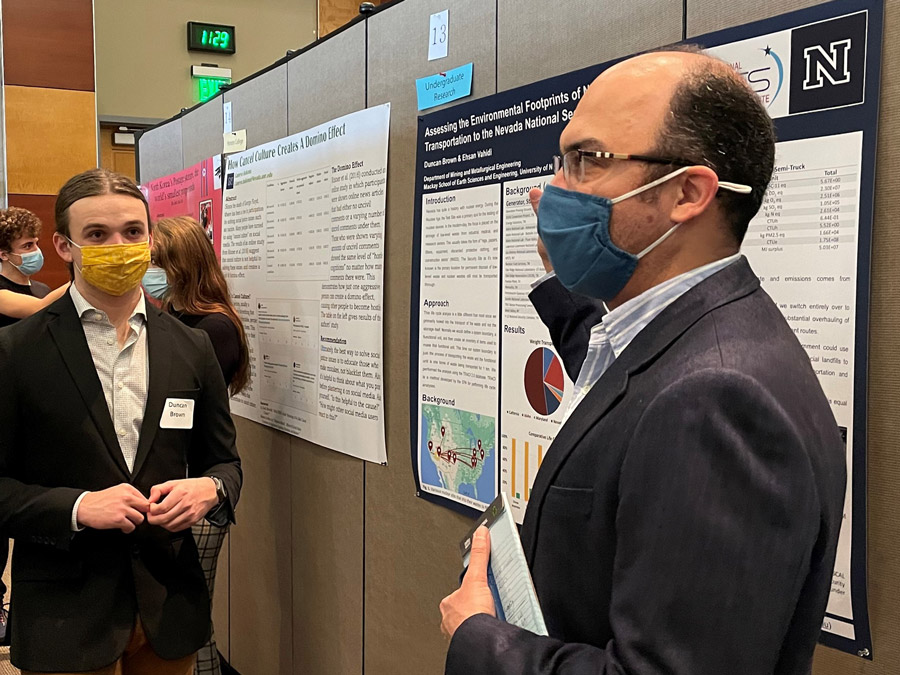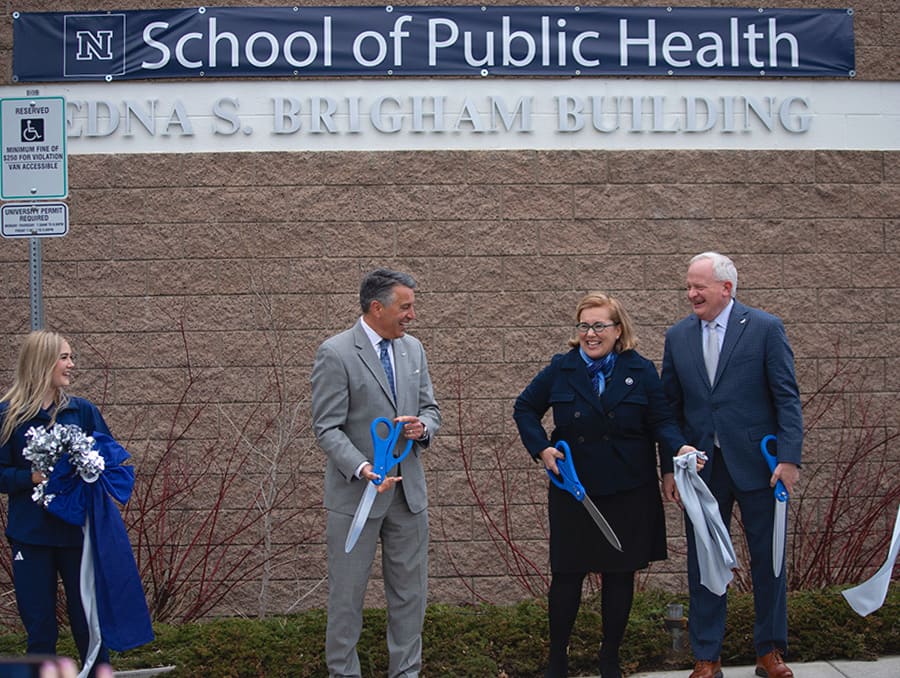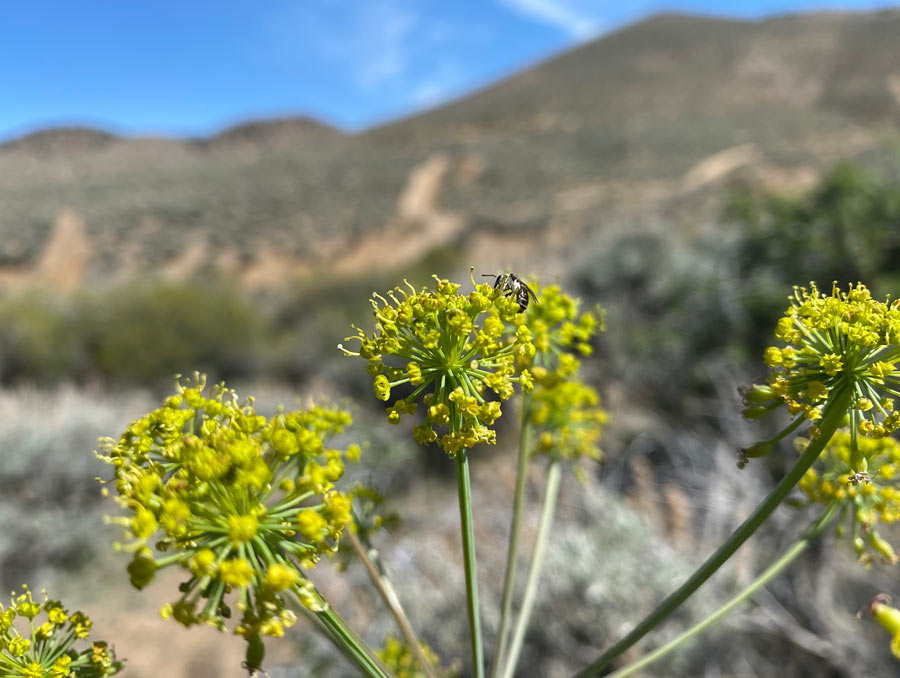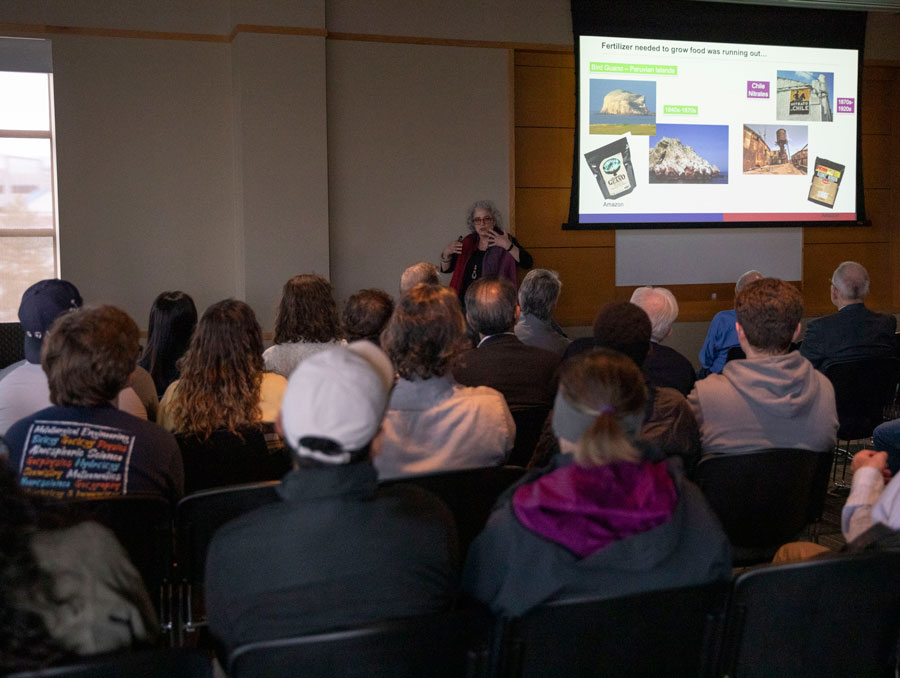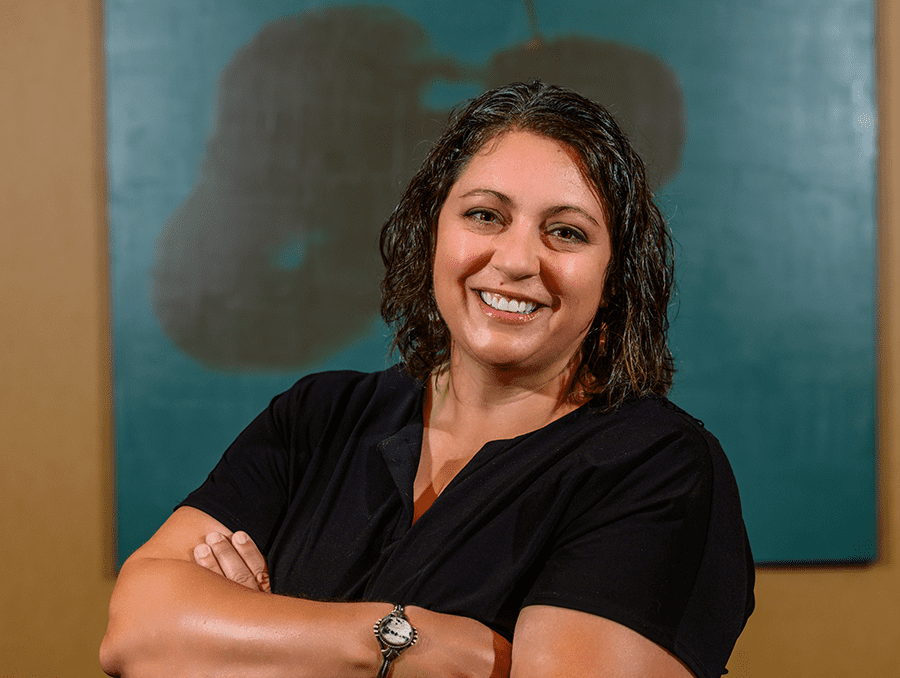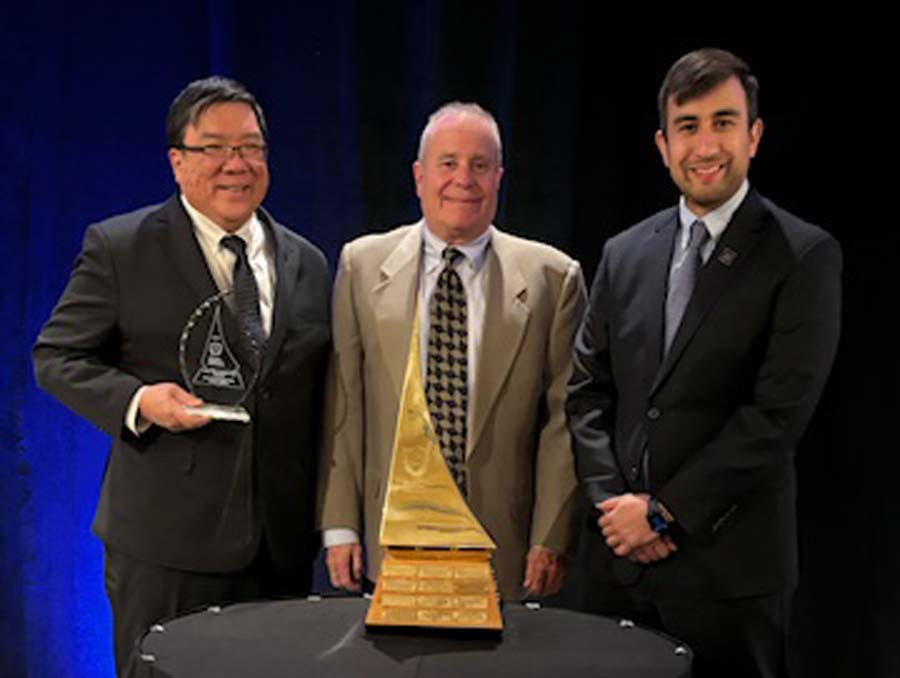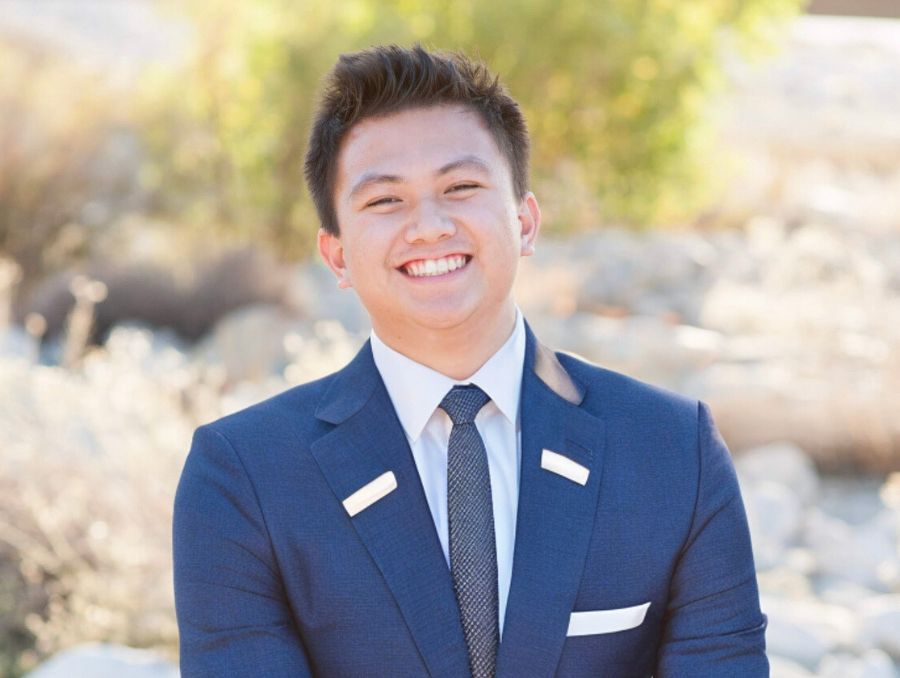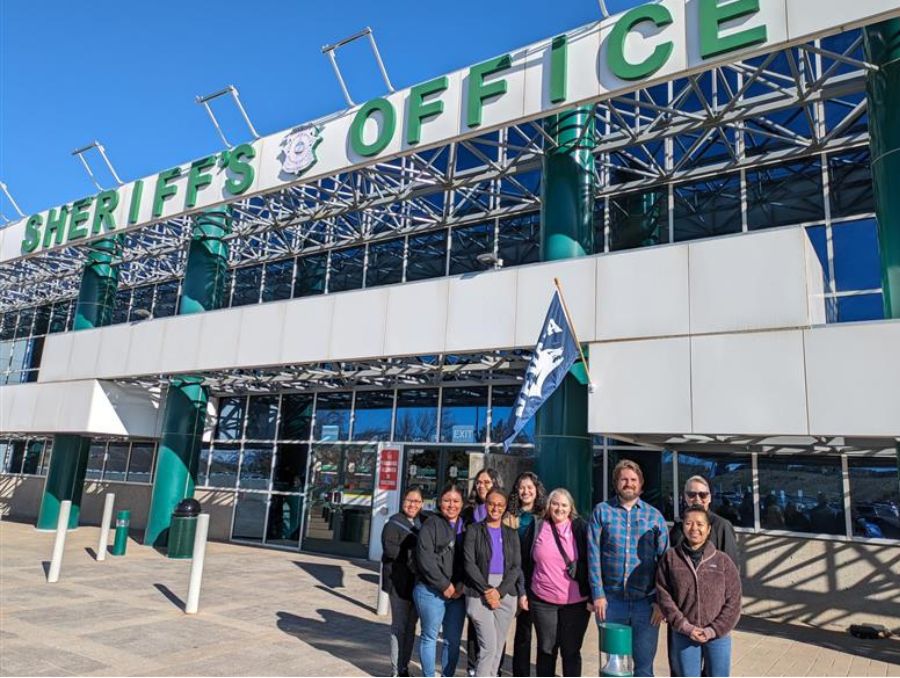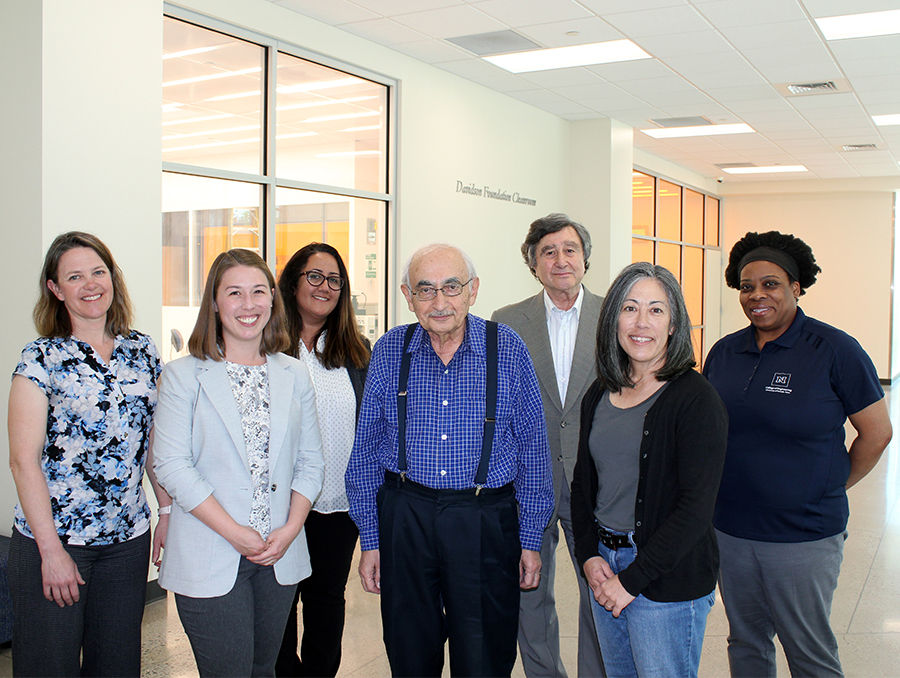A high-quality, successful mentorship relationship between an undergraduate student and a faculty member can be an opportunity for both to learn and grow personally and professionally. Examples of this were plentiful at the Wolf Pack Discoveries 2021 event, where more than 100 undergraduate students across disciplines showcased their research, scholarly and creative activities—projects done with the invaluable support of University of Nevada, Reno faculty mentors.
As National Mentoring Month comes to a close, these six mentors shared similar insights as to what makes their mentorship experiences successful:
- Lydia Huerta, assistant professor in the College of Liberal Arts’ Departments of Gender, Race, and Identity and Communication Studies
- Kathleen Leonard, principal lecturer in the College of Liberal Arts’ Department of World Languages and Literatures
- Jenny Ouyang, assistant professor in the College of Science’s Department of Biology
- Alissa Surges, lecturer in the College of Liberal Arts’ Department of English
- Ehsan Vahidi, John N. Butler Endowed Professor in Extractive Metallurgy, assistant professor in the College of Science’s Department of Mining and Metallurgical Engineering
- Mariann Weierich, James K. and Lois Merritt Mikawa Distinguished Associate Professor in the College of Science’s Department of Psychology
Communicating clear expectations
“Communication is key,” said Ouyang, a sentiment emphasized by all the mentors. Many explained how establishing clear and reasonable communication with the student was important to beginning a productive mentorship experience.
“Some students prefer in person meetings, others prefer emails, some texting,” Ouyang said. “So asking students ahead of time how, when and how often they wish to communicate is helpful.”
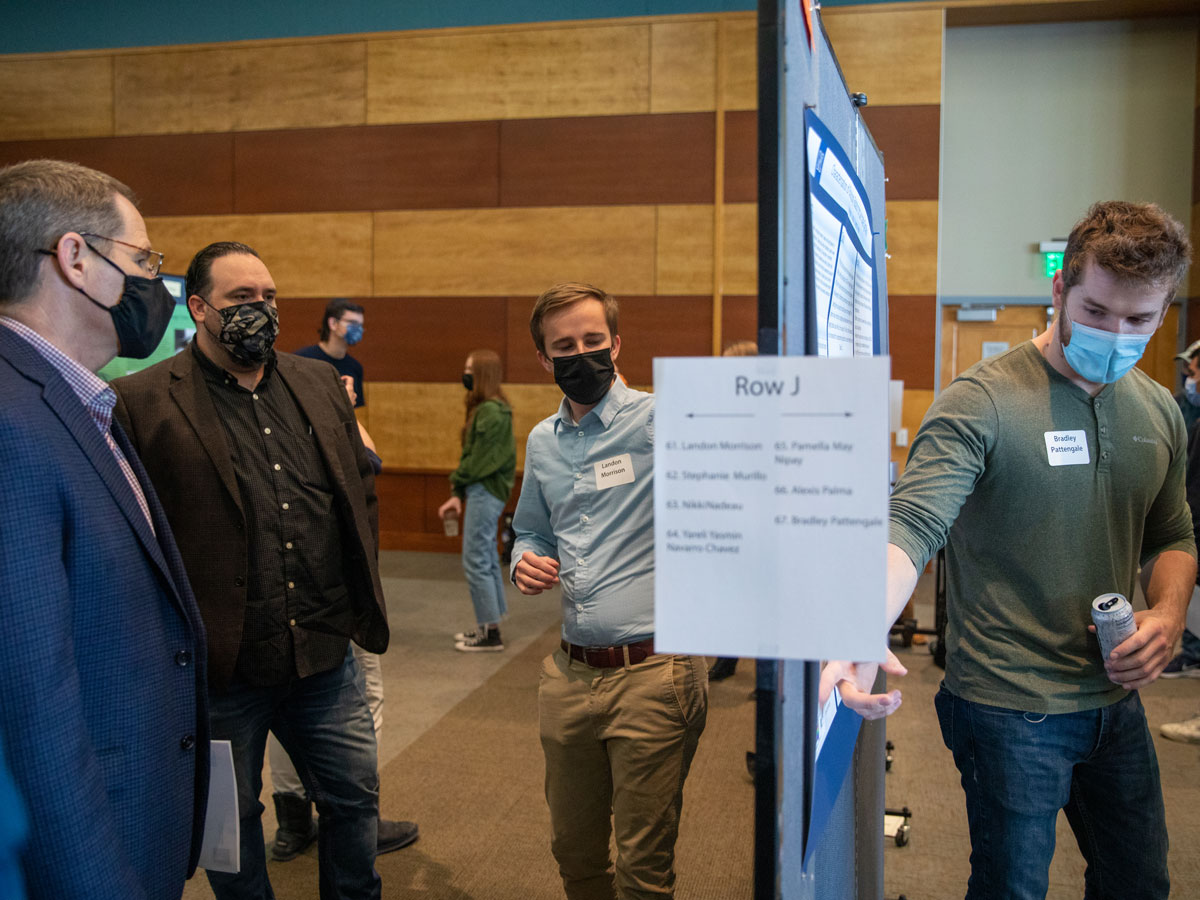 Students present to guests at the Wolf Pack Discoveries event.
Students present to guests at the Wolf Pack Discoveries event.Once the preferred communication method is determined, some mentors added that discussing goals and expectations for both the mentor and the mentee is especially beneficial. Making sure both parties agree about these objectives and checking in regularly to ensure those goals are continually being worked towards is crucial.
Huerta said she makes a point initially to ask important questions like: “How often should we meet? What kinds of expectations do you have? How much support do you need? Do you have any needs I should be aware of and/or that impact what you want to do?”
“Always try to contextualize your mentoring within the larger goals (e.g., successful admission to grad school, successful completion of a presentation) and communicate clearly the rationale for every step,” Weierich said. “It’s easy to forget that new mentees may not yet see the big picture, so the steps can seem abstract and confusing if we don’t explain how they fit.”
Leonard noted that after deciding communication methods and goals, it helps to “model professional habits” in your interactions with the mentee, like returning emails, keeping appointments and providing feedback in a timely manner. By setting a good example and sticking to the plan that was agreed upon, it allows for a better experience for both involved.
Being open to individualize
Another prominent theme among the mentors was a willingness to change their approach. Most expressed how they have become better mentors through time and experience, but all of them said that they have had to change their mentorship strategy based on the student.
“It’s important to recognize that your mentees have their own paths and needs and experiences,” Surges explained. “It’s tempting to impose our own beliefs on each mentee, but what’s right for us may not be right for them. I listen as best I can to each mentee and ask questions that will help them reach the goals they want to reach.”
Vahidi added how being a good listener can strengthen the mentorship. “I learned to develop my listening skills and this was the most important lesson learned through being a mentor,” he said. “I realized that by active listening, I can show my mentees that their concerns have been heard and understood and over time, this helps me build trust and a stronger partnership.”
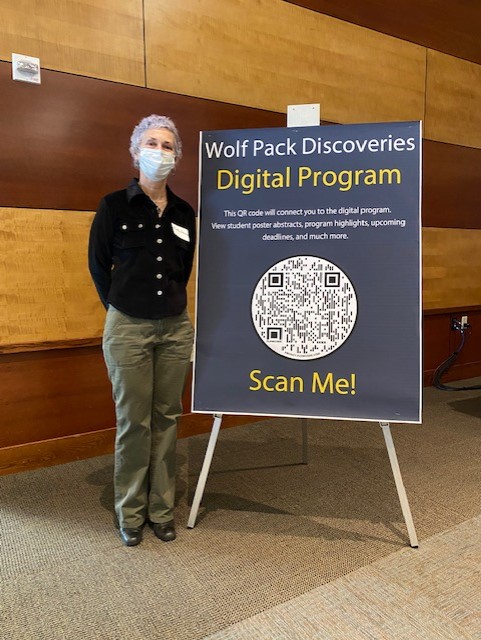 Kathleen Leonard at the Wolf Pack Discoveries event, where several of her students presented.
Kathleen Leonard at the Wolf Pack Discoveries event, where several of her students presented.Leonard said that her mentorship style depends on the kind of support necessary. Some students need academic advising, some are interested in studying abroad and others need mentoring on an Honors project. As Huerta explained, “every student is different, thus the way in which I approach mentoring is case by case.”
A few mentors also indicated they have not only changed based on the students, but also based on input from other faculty and resources. Accepting the advice of other mentors and learning how to improve mentorship skills through workshops or publicly available resources can elevate your abilities as a mentor.
Making an impact
Each mentor conveyed how rewarding it can be as the mentorship progresses. Throughout a mentorship experience, there are many opportunities to grow and learn from each other. Mentors described how different student perspectives have been beneficial to their own personal and professional development. In the case of students, a meaningful mentorship can propel them towards academic and professional ventures that they otherwise would not have pursued or thought they were capable of.
Weierich shared an example of this in one of her mentorships. “A few years ago, one mentee (now in a Ph.D. program) told me that an off-hand comment I made about what she might study in graduate school was the very first time anyone had ever told her that she could become a researcher, and the first time she believed that about herself,” she said.
Vahidi shared a personal example of how mentorship can open doors and present opportunities for students. “I introduced one of my mentees to a company that works in the same area of research and I asked my mentee to interact with them. After finishing my mentee’s project, the company offered him a full-time position.”
The benefits of a successful mentorship last long after a mentee graduates. All the mentors shared that one of the best rewards of their work is hearing about the success of their mentees.
“I’m very fortunate in that I’m in touch with the majority of my former mentees and get to hear what they’re doing as they move from the University to their first jobs, to graduate school, or to different states and countries,” Surges said. “This week, I heard from four alone, and they’re doing all these wonderful things in their careers and their lives.”
Ouyang said she also takes pride in knowing that her mentorship is preparing her students to be mentors in the future. “At the end of the day, the students that I mentor will one day be mentors themselves and knowing that I've made a tiny difference in their lives is everything,” she said. “I am thankful for my own mentors who have guided me to where I am today and hope that I can pass on some of their wisdom and kindness.”
To learn more about how to get involved in mentorship opportunities across campus, visit the University’s website and search for “mentor” or visit University’s Undergraduate Research.
